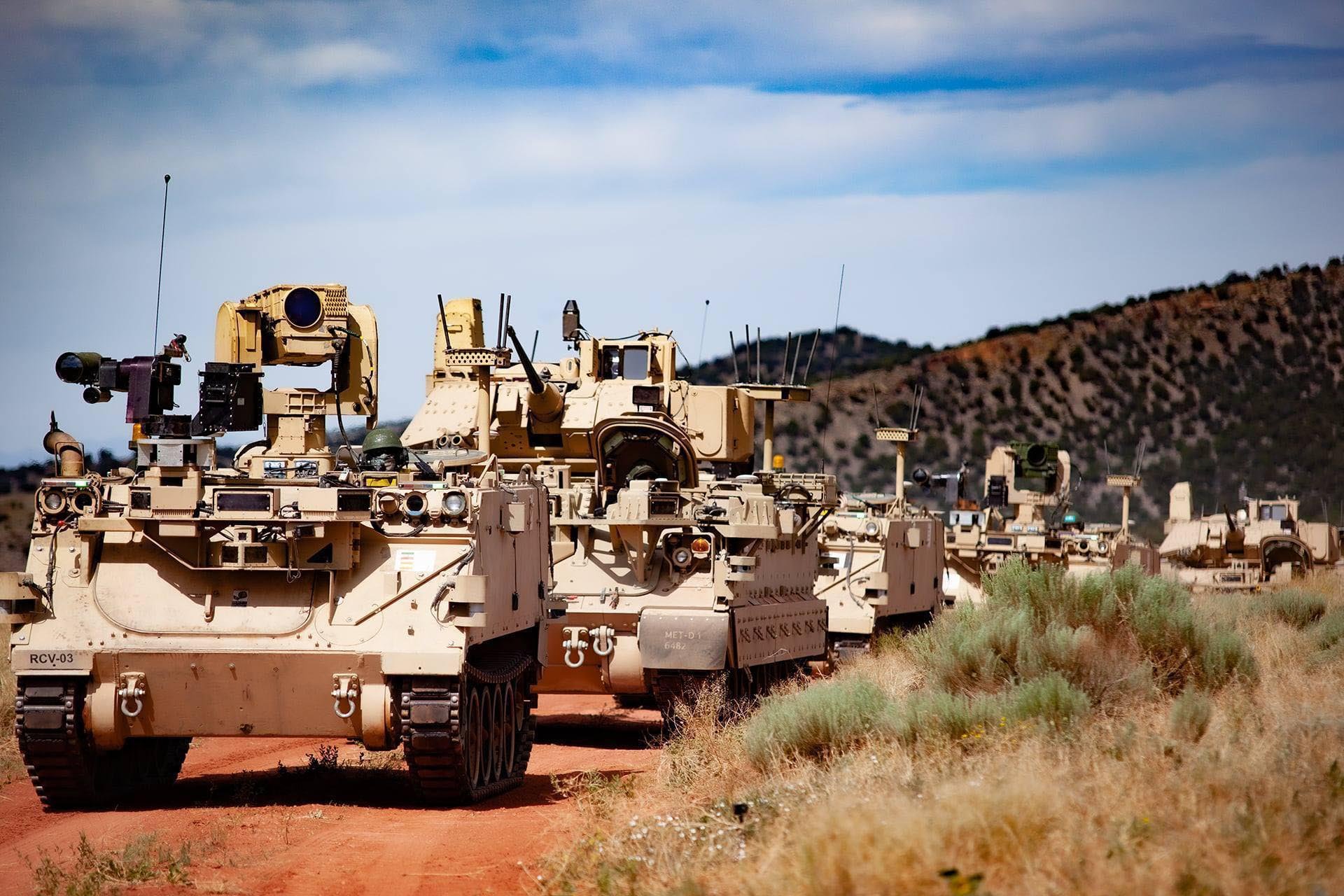Department Of Defense Kicks Off 17th Annual Engineers Week
For the 17th year now, the Defense Department is recognizing the important role engineers play in advancing the mission of defending the nation
(Photo Credit : Marine Corps Cpl. Seth Rosenberg)
Marine Corps Cpl. Christopher Hoang and Marine Corps Lance Cpl. Zachary Juteau, satellite transmission systems operators with the 11th Marine Expeditionary Unit, conduct performance checks on a Very Small Aperture Terminal – Large, during a communications exercise at Camp Pendleton, Calif., Dec. 7, 2020.
"The DOD must harness the incredible innovation ecosystem both domestically and globally in order to see ahead of our adversaries"
(Photo Credit: Jerome Aliotta, DOD)
Modified Bradley fighting vehicles, known as Mission Enabling Technologies Demonstrators, and modified M113 tracked armored personnel carriers, or Robotic Combat Vehicles, are used for the Soldier Operational Experimentation Phase 1 to further develop learning objectives for the manned-unmanned teaming concept, Fort Carson, Colo., Dec. 15, 2020.
During a virtual event today to highlight Engineers Week 2022 — this year with the theme of "Reimagining the Possible" — under secretary of defense for research and engineering, Heidi Shyu. discussed how critical the advancement of new technology is for the United States within the global security environment, and how engineers will help make that technology possible. Heidi Shyu said that confronting the security challenges will require the department to employ the next generation of highly talented scientists, engineers and future leaders.
According to a study published in the "Proceedings of National Academy of Sciences," a more diverse team is more likely to outperform a more homogeneous team, even when the homogeneous team is considered to have relatively greater ability as individuals, Shyu said.
Since 2016, the DOD has elevated research and science activity at historically Black colleges and universities and minority-serving institutions by awarding 343 research grants totaling more than $187 million, she said. The DOD has also established centers of excellence for defense technology priority areas with those colleges and universities.
Shyu recently made public a list of 14 technology areas she believes are the most important for the department to focus on. Those areas include biotechnology; quantum science; future-generation wireless technology; advanced materials; trusted artificial intelligence and autonomy; integrated network systems-of-systems; microelectronics; space technology; renewable energy generation and storage; advanced computing and software; human-machine interfaces; directed energy; hypersonics; and integrated sensing and cyber.
"The challenges facing our military are both diverse and complex, ranging from sophisticated cyber attacks to supply chain risks, to defending against hypersonic missiles, to responding to biothreats."
Taking advantage of America's existing innovation potential, building a stronger technical workforce, and leveraging partnerships. Among those partnerships, she said, are universities, university-affiliated research centers, federally funded research and development centers, the defense industry, the private sector and allies and partners.
"By working together we can solve the toughest challenges," she said, telling engineers who attended the virtual event that they are central to accomplishing the Department's goals.
"This engineers week is a celebration of your innovation, your creativity, your dedication and your passion to make this world a better place," she said. "Thank you all for what you do."
(Photo Credit : Donna Lindner, Air Force)
An experimental laser is in use at the Air Force Research Laboratory at Wright-Patterson Air Force Base, Ohio, Oct. 22, 2020.



